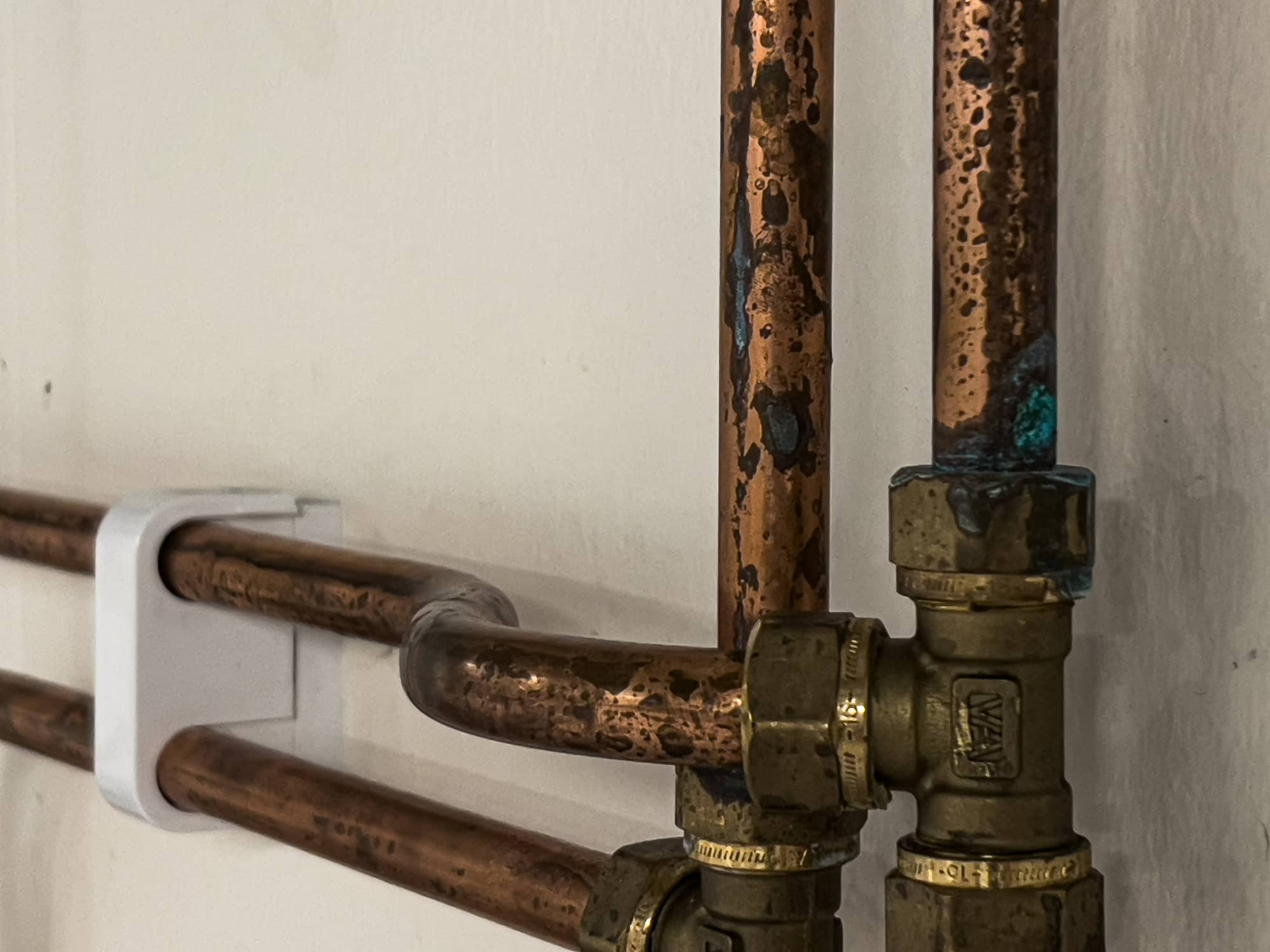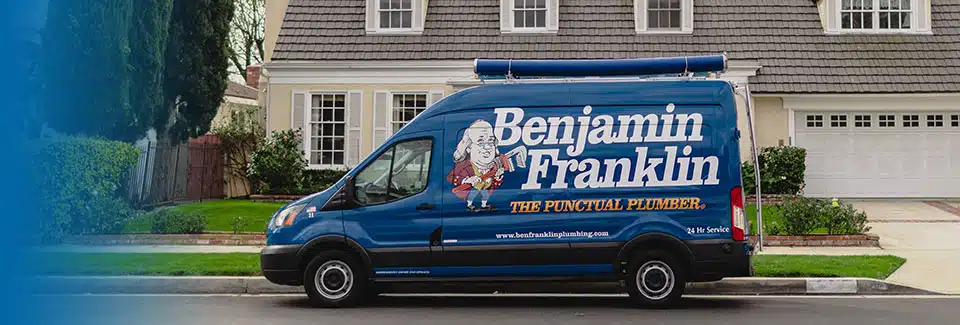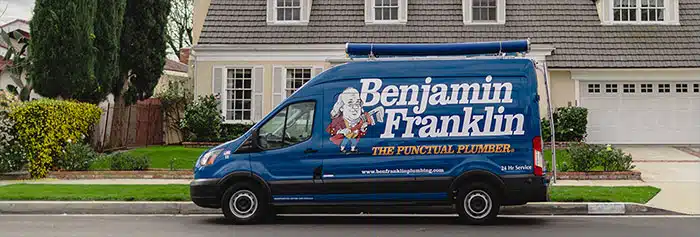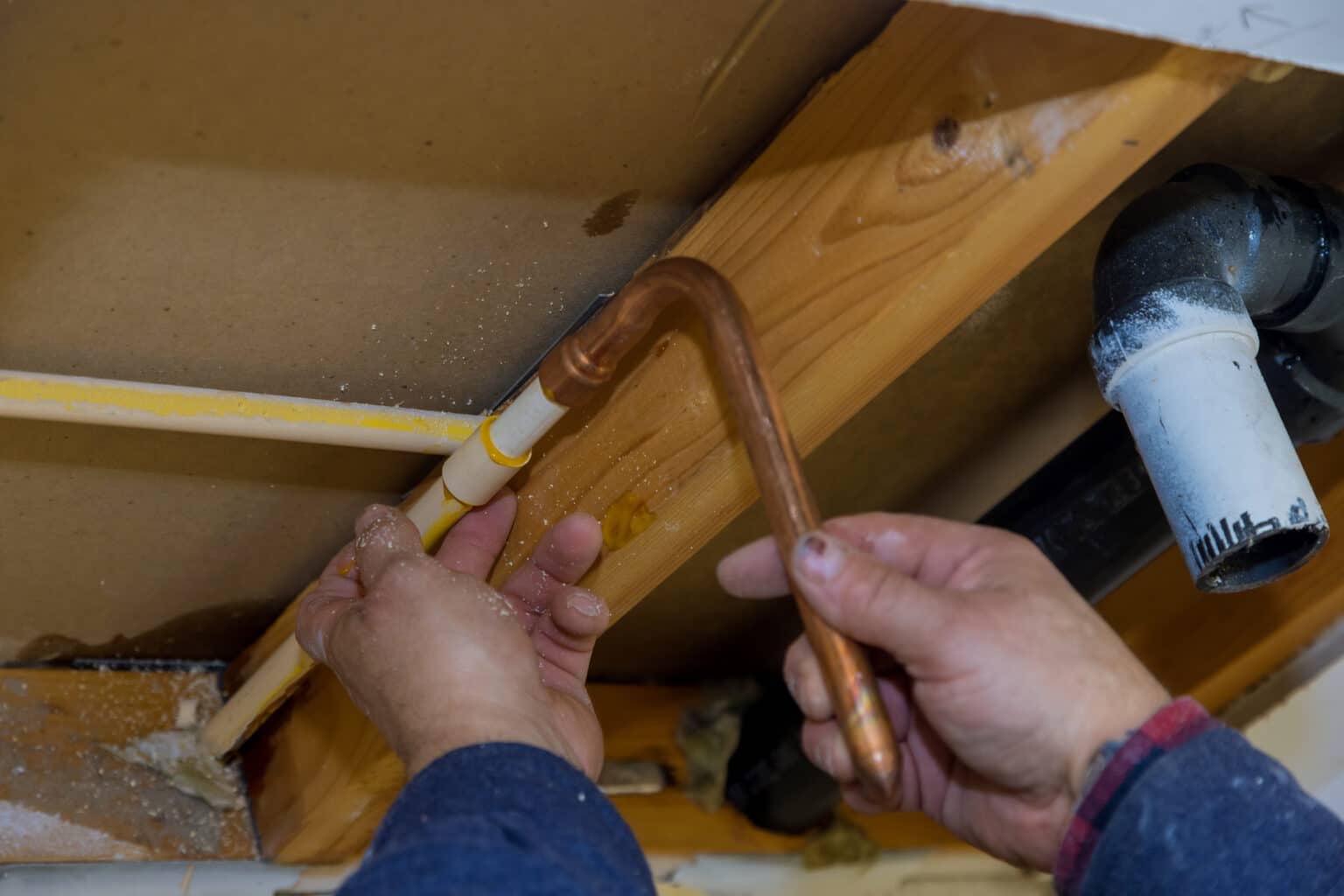Embarking on a whole house repiping project can seem daunting, but it’s a critical step towards ensuring your home’s plumbing system operates efficiently and reliably. In cities like Phoenix, where the climate can put extra strain on household systems, maintaining your plumbing becomes even more crucial. Whole house repiping is not just a repair solution, it’s a long-term investment in your home’s functionality and comfort. Understanding when and why to undertake this significant home improvement will help you make informed decisions about your property.
The necessity for whole house repiping often becomes apparent through persistent plumbing issues. Residents of Phoenix and Glendale might notice signs such as low water pressure, discolored water, or frequent leaks. These symptoms indicate that the plumbing system is failing and could benefit greatly from a comprehensive upgrade. By addressing these issues head-on, homeowners can prevent more severe problems down the line.
Opting for whole house repiping can dramatically improve your home’s plumbing system’s longevity and efficiency. This process involves replacing old, corroded pipes with new, durable materials that can withstand the rigors of daily use and the harsh Phoenix climate. The benefits are immediate: better water pressure, improved water quality, and the peace of mind that comes from knowing your plumbing is in top condition.
Finally, whole house repiping is a significant undertaking that requires professional expertise. Choosing the right plumbing service, such as Benjamin Franklin Plumbing in Phoenix, ensures that the project is completed efficiently and effectively. With the right team on your side, whole house repiping can be a smooth, hassle-free process that significantly enhances your home’s value and your family’s quality of life.
Understanding Whole House Repiping
Whole house repiping is a process that homeowners may not initially understand, yet its importance cannot be overstated. This procedure involves removing old and often corroded pipes from your home and replacing them with new, high-quality ones. It’s a comprehensive solution that addresses multiple issues in one go. For homes in Phoenix, where environmental conditions can accelerate wear and tear, this can be particularly beneficial.
When considering whole house repiping, one of the first steps is recognizing the signs that your system needs an overhaul. If you’re experiencing persistent problems like leaks, water discoloration, or inconsistent water pressure, it’s time to take action. These issues don’t just cause inconvenience, they can also lead to more significant damage if left unaddressed. In cities like Glendale, where water quality can vary, ensuring your pipes are in optimal condition is crucial for your health and safety.
The benefits of whole house repiping extend beyond fixing immediate problems. New pipes can significantly enhance your home’s water flow and quality, leading to a noticeable improvement in your daily life. Moreover, this upgrade can increase your property’s value, making it a wise investment for the future. For residents in Phoenix, where the real estate market can be competitive, this can give your home an edge.
Choosing a reputable company like Benjamin Franklin Plumbing for your whole house repiping project ensures that the work is done correctly and efficiently. Their team of professionals has the experience and knowledge to handle the complexities of such a significant undertaking. With their expertise, you can rest assured that your home’s plumbing system will be revitalized, providing you and your family with reliability and peace of mind for years to come.

Signs Your Home Needs Repiping
Understanding when your home requires whole house repiping is crucial for maintaining its integrity and functionality. Often, the age of your home serves as a primary indicator, most homes over 50 years old are prime candidates for this service. In Phoenix, the combination of age and environmental factors can accelerate the degradation of plumbing systems. If you’re living in an older residence, it’s wise to assess your plumbing’s condition regularly.
Another telltale sign is the presence of rusty or discolored water coming from your taps. This issue usually points to corroded pipes, a problem that can pose serious health risks over time. Residents in Glendale encountering this problem should consider it a red flag signaling the need for whole house repiping. Ensuring your water is clean and safe for daily use is a priority that cannot be overlooked.
Frequent leaks are more than just a nuisance, they’re a symptom of a failing plumbing system. Even small leaks can lead to significant water damage and mold growth if not addressed promptly. For homeowners in Phoenix, this can also translate into higher water bills and unnecessary expenditure. Whole house repiping can resolve these issues, securing your home against future leaks and related problems.
Lastly, if you’re experiencing persistent low water pressure, it might be time to look into whole house repiping. This issue often results from build-up inside old pipes, restricting water flow. Upgrading your plumbing system can restore optimal water pressure, enhancing your daily comfort. By addressing these signs early, you can safeguard your home’s plumbing system, ensuring it serves you efficiently for many years to come.
The Benefits of Whole House Repiping
Whole house repiping offers a multitude of benefits that extend well beyond merely addressing immediate plumbing issues. Homeowners in Phoenix will find that one of the most significant advantages is the substantial improvement in water quality. With new pipes free from corrosion and buildup, the water that flows into your home is cleaner and safer for consumption. This upgrade is essential for ensuring the health and well-being of your family.
Another key benefit is the enhanced water pressure that accompanies a whole house repiping project. Residents who have struggled with low water pressure due to old, clogged pipes will notice a marked improvement. This means showers, faucets, and appliances can operate more efficiently, making daily tasks more convenient and enjoyable. It’s a change that significantly boosts the overall functionality of your home’s plumbing system.
In addition to improving water quality and pressure, whole house repiping can also prevent future plumbing emergencies. By replacing old pipes that are prone to leaks and bursts, homeowners can avoid the stress and high costs associated with water damage and repairs. This proactive measure protects your property in Glendale from potential disasters, offering peace of mind and saving money in the long run.
Lastly, investing in whole house repiping can increase your home’s value. Prospective buyers are often willing to pay more for homes with modern, reliable plumbing systems. This upgrade not only makes your home more attractive on the market but also can expedite the sale process. For homeowners in Phoenix looking to sell, whole house repiping is a wise investment that can yield significant returns.
Choosing the Right Materials for Repiping
When embarking on a whole house repiping project, selecting the right materials is crucial for ensuring the longevity and efficiency of your plumbing system. In Phoenix, where temperatures can soar, choosing materials that can withstand the heat and resist corrosion is essential. Metals like copper have been popular for their durability and resistance to bacteria, while newer options like PEX piping offer flexibility and a lower cost. Each material comes with its own set of benefits, making it important to consider your home’s specific needs.
In Glendale, homeowners might lean towards PEX piping due to its resistance to scale and chlorine, making it a great option for areas with hard water. This material is also less likely to burst if it freezes, an advantage in colder climates. Its ease of installation can lead to reduced labor costs, making it an economical choice for whole house repiping. Understanding the pros and cons of each material helps in making an informed decision that suits both budget and lifestyle.
For those concerned with water quality, copper pipes remain a top choice. They do not release harmful substances into the water and can last for decades with proper maintenance. However, the initial investment in copper might be higher than other materials. Balancing cost with benefits is key, especially when considering the long-term impact on your home’s plumbing system.
Ultimately, consulting with a professional plumber, such as those at Benjamin Franklin Plumbing, can provide valuable insight into the best materials for your whole house repiping project. Their expertise ensures that the chosen materials are not only suited to the Phoenix climate but also to your home’s specific plumbing needs. Making the right choice in materials is a step towards a more efficient, reliable plumbing system that will serve your home for years to come.
What to Expect During the Repiping Process
Understanding what to expect during the whole house repiping process can help homeowners in Phoenix prepare for the project ahead. Initially, a thorough inspection of your home’s current plumbing system will be conducted. This step is crucial to identify the specific needs and challenges of your home. It ensures that the repiping plan is tailored to provide the best results.
Following the inspection, the actual repiping begins, which involves the removal of old pipes and the installation of new ones. Homeowners in Glendale should be prepared for this phase to take several days, depending on the size of their home. The professionals handling the project will make every effort to minimize disruption. They aim to keep your home as functional as possible during the process.
After the new pipes are installed, rigorous testing is conducted to ensure everything is working correctly. This includes checking for leaks and testing water pressure throughout the house. It’s a critical step to guarantee that the new plumbing system not only meets but exceeds the homeowner’s expectations. Ensuring the system’s reliability and efficiency is a top priority.
Finally, once the whole house repiping is completed, homeowners can enjoy the numerous benefits of a modern plumbing system. These benefits include improved water quality, increased water pressure, and the peace of mind that comes from knowing your plumbing is up to date. With the project complete, residents in Phoenix and Glendale can look forward to many years of reliable service from their new plumbing system.
How Whole House Repiping Affects Water Pressure and Quality
Whole house repiping significantly enhances water pressure in your home. In Phoenix, where the demand for efficient water use is high, this improvement means showers become more invigorating and appliances fill up faster. The removal of old, clogged pipes allows water to flow freely, eliminating frustrating fluctuations in pressure. This upgrade ensures every tap in your home delivers water more consistently, enhancing daily routines.
The quality of water also sees a remarkable improvement following whole house repiping. With new pipes free of corrosion and buildup, the water that reaches your Glendale home is cleaner and tastes better. This is especially important for families concerned about the health implications of consuming water from old, degraded pipes. As a result, you can enjoy peace of mind knowing your water is safer for drinking and cooking.
Another benefit of whole house repiping is the reduction in potential health risks associated with old plumbing systems. Pipes that are past their prime can leach harmful materials into your water supply, posing a danger to your family’s health. By opting for repiping, you eliminate these risks, ensuring the water in your home is free from contaminants. This proactive approach safeguards your family’s well-being and contributes to a healthier home environment.
Finally, the investment in whole house repiping pays dividends in the long run. Not only does it improve your immediate water usage experience, but it also increases your home’s value. Potential buyers in Phoenix and Glendale are often willing to pay more for a home with a modern, reliable plumbing system. This makes repiping a wise choice for homeowners looking to enhance their property’s marketability and ensure its longevity.
Comparing the Costs: Repiping vs. Repairing
When considering the overall costs and benefits of whole house repiping versus repairing existing pipes, homeowners often find repiping to be a more cost-effective solution in the long run. Repairs might seem less expensive upfront, but they can quickly add up, especially in older homes in Phoenix where plumbing issues are more frequent. Repiping eliminates the need for constant fixes, offering a one-time investment that ensures a durable and reliable plumbing system.
In contrast, repairing old pipes only offers a temporary fix. Residents in Glendale might notice that after addressing one issue, another arises, leading to a cycle of continuous expense and inconvenience. Whole house repiping, on the other hand, addresses the root cause of plumbing problems, significantly reducing the likelihood of future issues. This comprehensive approach not only saves money over time but also enhances the overall functionality of your home’s plumbing system.
The initial cost of whole house repiping can be more substantial than that of piecemeal repairs. However, considering the extended lifespan of new piping systems, the investment proves to be more economical. With modern materials that resist corrosion and wear, homeowners can enjoy a worry-free plumbing system for decades. This longevity greatly diminishes the need for frequent repairs, ultimately leading to substantial savings.
Finally, it’s essential to factor in the value that whole house repiping adds to your property. A home with a new, efficient plumbing system is more attractive to potential buyers in both Phoenix and Glendale. This upgrade not only improves your daily living experience but also increases your home’s market value. In the debate between repiping and repairing, the former clearly offers a more beneficial and cost-effective solution for homeowners looking to invest in their property’s future.
Maintenance Tips After Whole House Repiping
After completing a whole house repiping project, establishing a maintenance routine is crucial to extend the lifespan of your new plumbing system. Regularly checking for leaks, even minor ones, can prevent water damage and mold growth. Homeowners in Phoenix should consider annual inspections by professionals to ensure everything remains in top condition. This proactive approach helps identify potential issues before they escalate, saving time and money.
Flushing your system once a year helps remove any sediment build-up, maintaining water quality and pressure. Residents in Glendale will find this particularly beneficial, as it ensures the longevity of their pipes. Using water softeners can also minimize the risk of mineral deposits, which can clog pipes over time. These simple steps can significantly contribute to the efficiency and durability of your plumbing system.
Educating yourself and your household on what shouldn’t go down your drains is another effective maintenance strategy. Avoid disposing of grease, coffee grounds, and non-biodegradable items in sinks and toilets. Such practices can lead to blockages and put unnecessary strain on your new pipes. Implementing these habits ensures your plumbing system operates smoothly, reducing the need for repairs.
Lastly, staying informed about the latest plumbing technologies and materials can offer additional benefits to your home’s plumbing health. Innovations in water treatment and filtration systems can further protect your pipes from corrosion and wear. By keeping up with new advancements, homeowners in Phoenix and Glendale can enhance their whole house repiping investment, ensuring their plumbing system remains modern, efficient, and reliable for years to come.

Frequently Asked Questions
What is whole house repiping?
Whole house repiping involves replacing all the plumbing pipes in your home. This process ensures your system runs smoothly and efficiently. It’s often necessary when pipes become old or damaged. By updating your plumbing, you can avoid leaks and improve water quality.
How long does repiping take?
Repiping a whole house usually takes between a few days to a week. The time frame depends on the size of your home and the complexity of the plumbing system. Skilled plumbers, like those at Benjamin Franklin Plumbing in Phoenix, work efficiently to minimize disruption. They ensure your home’s plumbing is updated quickly and professionally.
What materials are used in repiping?
In whole house repiping, plumbers often use copper, PEX, or CPVC pipes. Copper is known for its durability and longevity. PEX, on the other hand, is flexible and resistant to scale and chlorine. CPVC is cost-effective and easy to install, making it another popular choice.
When should you consider whole house repiping?
Consider whole house repiping if your home’s plumbing is over 50 years old. Frequent leaks, discolored water, and low water pressure are clear signs. These issues indicate that your pipes may be deteriorating. Upgrading your plumbing with Benjamin Franklin Plumbing in Phoenix can significantly enhance your home’s water system efficiency.
Can repiping increase home value?
Absolutely, repiping can boost your home’s value significantly. New plumbing appeals to potential buyers, ensuring a smoother sale. It also indicates to appraisers that your home has modern, efficient systems. Ultimately, investing in whole house repiping with Benjamin Franklin Plumbing in Phoenix can be a wise financial decision.


